A…B-Z of 2023!
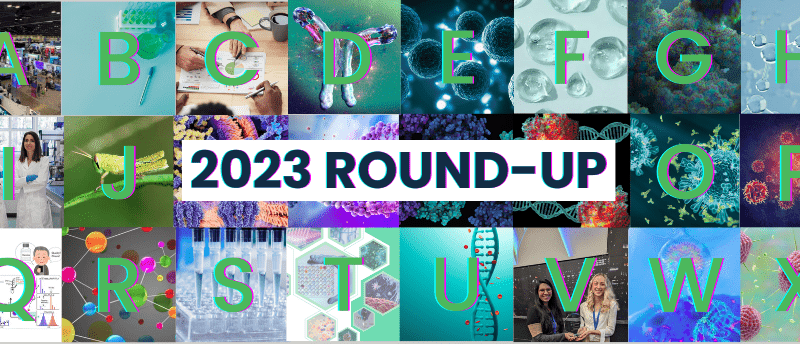
What a year it’s been on Bioanalysis Zone. 2023 has seen new award winners, a healthy number of podcasts and many a webinar. We celebrated International Women’s Day in March with our inspirational female scientists, covered the latest bioanalytical news stories and met with industry experts at international conferences. We even published the latest version of The Bioanalysis Glossary. In celebration of all the hard work and collaboration from over the year, we’ve put together a AB-Z of Bioanalysis Zone 2023 for you to dip into before we embark on 2024.
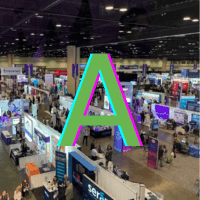 AAPS PharmSci360 2023 conference (FL, USA)
AAPS PharmSci360 2023 conference (FL, USA)
Bioanalysis Zone joined ~4000 scientists, delegates and students at AAPS PharmSci360 2023! The event covered bioanalysis, career development, discovery and basic research, and formulation and delivery, with a range of talks available to attendees. Catch up on the specialist talks with our conference report or watch our interviews from the conference floor [LINK].
A new feature of 2023 was our podcast series ‘Beyond the Abstract’. Each episode involves a Bioanalysis author discussing their publication’s biggest challenges, wider implications and next steps. This series is a great resource for aspiring authors or for those wanting an insider perspective on the life of a bioanalyst. Listen to the whole series now.
 Coffee Chat: reporting requirements for ICH M10
Coffee Chat: reporting requirements for ICH M10
In this intimate discussion, we explore the implementation of step 5 of the ICH M10 guidance. Our experts cover the writing of the method validation and sample analysis reports used to make regulatory decisions and the tools – such as StudyDoc – to adapt to the ever-changing bioanalytical environment. Be sure to listen in.
Development of a hybrid IA-LCMS approach to supplement ADA testing
Biotherapeutics can elicit an immunogenic response causing production of anti-drug antibodies (ADAs), thereby jeopardizing patient safety and/or product efficacy. This webinar, hosted by our 2023 BRSA winner Shivangi Awasthi, delves into the utilization of LC–MS for the characterization of immunogenicity.
 eBook: Flow cytometry in cancer therapy development
eBook: Flow cytometry in cancer therapy development
Flow cytometry is typically utilized within the drug development process, from target identification to lead development, as it can facilitate investigations into the efficacy and toxicity of the drug. In this eBook, we explore the recent advances in flow cytometry, its application in drug discovery and how to overcome the challenge of sample stability.
 Finding a needle in a haystack: aptamer screening using hydrogels
Finding a needle in a haystack: aptamer screening using hydrogels
Aptamers – short, single-strands of DNA or RNA – are used to selectively bind and recognize their respective targets and are often even referred to as ‘chemical antibodies’. They can be used to target proteins, peptides, carbohydrates and small molecules and are becoming popular tools in bioanalysis.
 Glycomics and glycoproteomics: A (not so) new frontier in biology
Glycomics and glycoproteomics: A (not so) new frontier in biology
Glycosylation plays an important role in disease development, with aberrant glycosylation linked to neoplastic, metabolic, neurodegenerative and other disorders. Recent progress in analytical technologies, prominently based on mass spectrometry, is leading to renewed interest and new insights. You can listen to the full webinar here.
 Highlights from the 2023 WRIB conference and a look to the future for biomarkers from Jian Wang
Highlights from the 2023 WRIB conference and a look to the future for biomarkers from Jian Wang
We spoke to Jian Wang, Director for bioanalysis/biomarkers at Crinetics Pharmaceuticals, Inc (CA, USA) about his WRIB 2023 experience chairing a specialized workshop and presenting his group’s research. Jian commented on the need for further biomarker validation guidance.
 International Women’s Day with Future Science Group
International Women’s Day with Future Science Group
In celebration of International Women’s Day 2023, we collated advice from women across the STEM community, as well as their top resources to help broaden your networks and meet more like-minded women in science. This resource is still available to download for when you need that extra bit of inspiration!
 Jiminy cricket! Locusts discovered to ‘smell’ cancer in humans
Jiminy cricket! Locusts discovered to ‘smell’ cancer in humans
In this rather unique news story, Michigan State University (MI, USA) researchers discovered that locusts can smell the difference between healthy cells and cancer cells. Although locusts would not be directly involved in diagnosis, they could provide the groundwork for devices that assist in the early detection of cancer.
 Kite announces Phase II study results of CAR T-cell therapy Yescarta®
Kite announces Phase II study results of CAR T-cell therapy Yescarta®
The Phase II ALYCANTE study investigated the use of CAR T-cell therapy Yescarta in patients with relapsed/refractory large B-cell lymphoma. Kite evaluated the efficacy and safety of Yescarta as a second-line treatment in 62 patients deemed ineligible for high-dose chemotherapy and autologous stem cell transplantation.
 Life finds a way: 2.6 billion year old ancestors of CRISPR system discovered
Life finds a way: 2.6 billion year old ancestors of CRISPR system discovered
An international research team was able to reconstruct ancestors of the CRISPR-Cas system dating back 2.6 billion years in order to study their evolution over time. The team believes this, “opens up new avenues for gene editing”, as they have discovered that the reawakened systems work and are more versatile than current versions.
 More bang for your buck: newly developed RNA-based sensor detects protein biomarkers for USD $1
More bang for your buck: newly developed RNA-based sensor detects protein biomarkers for USD $1
Conventional testing of biomarkers can cost USD $100-1000 or, in some cases, even more. To combat this issue, Penn State University (PA, USA) researchers developed a low-cost, RNA-based technology to detect and measure protein biomarkers.
 Novel gene editor proves to be a pint-sized powerhouse
Novel gene editor proves to be a pint-sized powerhouse
A compact CRISPR-based gene-editing enzyme, AsCas12f, has been developed, which is one-third the size of the widely used Cas9. AsCas12f was engineered to have ten times more editing ability than the original unmutated version, by combining selected mutations and its smaller size enables efficient delivery into cells via carrier viruses.
 Overcoming Drug & Target Tolerance Limitations in Immunogenicity Testing
Overcoming Drug & Target Tolerance Limitations in Immunogenicity Testing
Immunogenicity assays are required by regulatory agencies to determine whether your drug may elicit an unwanted immune response in human patients by producing ADAs. To illustrate some of these challenges, the Agilex bioanalytical team presents three case studies where standard approaches failed to address drug or target tolerance-related issues.
 Precision oncology: an interview with Karina Eterovic
Precision oncology: an interview with Karina Eterovic
This In the Zone podcast, guided by Karina Eterovic, explores how precision oncology is currently utilized in the bioanalytical field, the use of liquid biopsies to support these studies and the major challenges impacting drug development. You can find other resources related to precision oncology here.
 Quality control of mRNA medications using LC-MS
Quality control of mRNA medications using LC-MS
Researchers from Tokyo Metropolitan University (Japan) and RIKEN Center for Sustainable Resource Science (Kyoto, Japan) developed a novel analytical platform based on isotope dilution LC-MS and automated software analysis. The platform facilitates the quantitative characterization of long, modified mRNAs through comparison with a stable isotope-labelled reference.
 Robert MacNeill: charge state whack-a-mole
Robert MacNeill: charge state whack-a-mole
In his ever-entertaining column, Robert MacNeill (Pharmaron; PA, USA) discusses how moles are a chemist’s friend and why all charge states should be monitored and used for quantification via summing. You can view all of Rob’s past columns here, including his Halloween special and Star Wars themed commentary. Happy reading!
 Single-analyte biomarker assays for PK or safety assessment
Single-analyte biomarker assays for PK or safety assessment
As biotherapeutics progresses through preclinical and clinical phases, the value of high-quality, well-characterized single-analyte assays with high sensitivity, reproducibility and broad dynamic range becomes essential to the utility of these assays as surrogate endpoints, efficacy markers or safety biomarkers for validation of regulated studies. Read more in this Tech Digest.
This year, we brought you the 5th Edition of The Bioanalysis Glossary, aiming to keep you up-to-date on the latest terminology and equations within the bioanalytical space. We collaborated with 18 prominent bioanalytical experts who have worked with us closely to provide a thorough update, reflecting the dynamic and constantly evolving nature of bioanalysis.
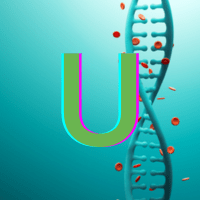 Updates in oligonucleotide-based therapies
Updates in oligonucleotide-based therapies
Therapeutic oligonucleotides are an integral new drug modality for development and discovery, as they have the potential to treat a wide range of diseases. In this article, we summarize some of the latest research focused on the current applications and challenges associated with therapeutic oligonucleotides.
 Video interview with the Bioanalysis Rising Star Award 2023 winner
Video interview with the Bioanalysis Rising Star Award 2023 winner
BRSA winner Shivangi Awasthi (Merck & Co, Inc; PA, USA) describes the overwhelming support from the international bioanalytical community. For those thinking about nominating themselves or a colleague for the 2024 award, Shivangi encourages new scientists to be their best advocates and to not be afraid to put themselves out there!
 What if we could eliminate lymphodepleting chemotherapy before CAR T therapy?
What if we could eliminate lymphodepleting chemotherapy before CAR T therapy?
Lymphodepleting chemotherapy – the process of killing existing T-cells to create a ‘blank slate’ for CAR T-cells – is commonly performed prior to CAR T-cell reinfusion. New research, published in Molecular Therapy, introduces a unique approach to preparing CAR T-cells prior to CAR T therapy, which may eliminate the need for lymphodepleting chemotherapy.
 ‘xpert opinion: Immunogenicity considerations for AAV gene therapy with Bonnie Wu
‘xpert opinion: Immunogenicity considerations for AAV gene therapy with Bonnie Wu
We spoke to Associate Scientific Director Bonnie Wu about the risks to drug efficacy and patient safety caused by immunogenicity and her recommendations for selecting appropriate AAV NAb assays for monitoring humoral responses to a therapeutic.
 (10th EBF) Young Scientist Symposium
(10th EBF) Young Scientist Symposium
New scientific or regulatory expectations and technology developments, among others, can make navigating the bioanalytical field challenging for young scientists. This symposium aims to rethink how young scientists can contribute to the community and have their say. Make sure to save the 2024 dates!
And last but certainly not least, it’s our Zone Leaders! This experienced team is a valuable asset to Bioanalysis Zone, providing their advice and guidance on our content, helping to select deserving award winners and more. Think you’d be a good Zone Leader? Reach out to one of our Editors for more information.

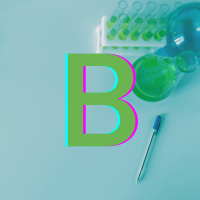 Beyond the Abstract
Beyond the Abstract
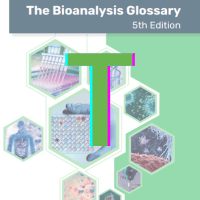 The Bioanalysis Glossary
The Bioanalysis Glossary Zone Leaders
Zone Leaders



